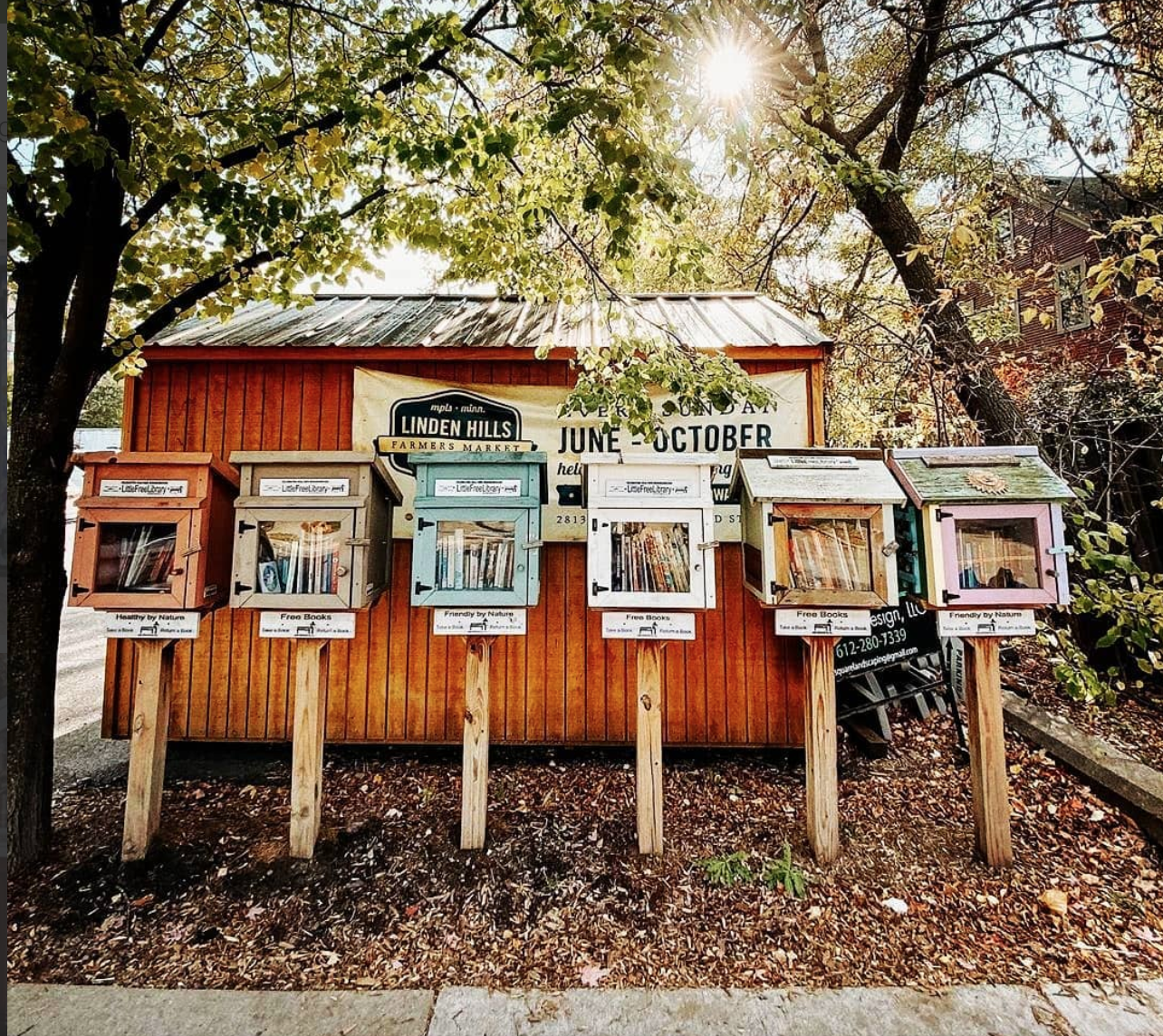Where to Donate Your Old Books
Books are great, but once you start accruing a library of your own the sheer amount of them can be a little overwhelming. Especially if you’re moving or trying to make space for more books to be added to your collection, it can be tough to let go of old, yet loved, books that you don’t necessarily need any more.
Well instead of throwing old books into the trash to get rid of them (which sounds horrifying), there’s plenty of other options to safely recycle your old books so that members of your community (and other communities) can benefit from the books you no longer read or need! Here are some of my favorite options for book donations, but feel free to let me know what yours are in the comments below and I’ll add them to this blog post.
Local Bookstore Trade-In Program
Independent bookstores are the backbone of the book world. Okay, that might be a little exaggerated (only a little), but there is so much that indie bookstores offer to your local community that other big chain bookstores don’t provide. In addition to all of the other great benefits that come with supporting your local indie bookstore over large corporate chains, one of the more common features is that independent bookstores typically have a trade-in program where you donate old books for in-store credit.
Pros
-You basically get your money back so you can buy new books
-It’s an easy way to support your local bookstore by providing free inventory for them to utilize as they need to
Cons
-Most indie bookstores only accept books that they can re-sell, so no super old or super dilapidated books. Some even have restrictions on what books they accept, like mine only takes paperbacks.
-The trade-in credit usually only applies to that specific store, which won’t work out if you’re planning on doing your book shopping elsewhere.
Thrift Stores
Thrift stores are the end-all, be-all of donation centers. It can vary from store to store, but thrift stores can accept anything from furniture to clothes and books. Many of these thrift stores are ran by charities, but others operate as discounted retail stores. The difference between donating to a local bookstore and donating to a thrift store is that there’s typically no trade-in credit for the act. Sometimes you can receive a tax break if you ask for a receipt, but that varies from store to store as well.
Pros
-Easily donate your books, clothes, furniture, etc. all in one place
-There’s (usually) no restrictions on the types of books they accept
Cons
-Some thrift stores have complicated motives behind their creation so it’s best to research them before providing free inventory for a cause you don’t necessarily support
-Believe it or not, thrift stores can actually restrict donations based on need. If they’re filled on books, they don’t have to accept yours to overstock their shelves.
Little Free Libraries
If you’re lucky, your community might have dandy (and adorable) little libraries scattered around your area. Since they’re not usually monitored and they’re often found in easily accessible locations, they’re a great facet for readers who don’t want to feel restricted by a normal library’s collection or check-out terms. These little guys are supplied solely on the generosity of their sponsors and readers like you.
Pros
-As mentioned earlier, little libraries are supplied solely by the generosity of donated books so you’ll be providing an enormous service to an important cornerstone of your community’s reading habits.
Cons
-As the name implies, these libraries are little. You can’t bring your boxes and boxes of books to drop off here. Only a handful at a time, please!
The Public Library
Much like a little library, your public library allows readers to borrow from their collection of books for free. The only difference is that they’re much bigger, they have restrictions on checkouts, and they’re funded by the government. The government budget allows them to have a much wider variety of books to read, but the budget is still restrictive. Donating books to your local library allows them to have a large inventory for their book sales to generate revenue. Sometimes they’ll even introduce your donated books into circulation as well, depending on demand.
Pros
-You can donate boxes of books at a time with little restriction.
-One of the best ways to support your local library, which is an incredibly important pillar to your community that provides tons of services outside of books. Need to know more? Watch my video about how to best utilize your library.
Cons
-Not every library has an easily accessible way to accept book donations so it might not be the easiest option for some people.
The Harry Potter Alliance ‘Accio Books’ Fundraiser
Do you want your old books to make an impact outside of your local community? Consider stocking up your donations for the Harry Potter Alliance’s annual “Accio Books” campaign! This annual fundraiser accepts both books and money for donations and often goes to help international services. It changes from year to year, but the book drive itself as an event is consistent enough that you could schedule your regular bookshelf purges with it.
Pros
-You’re expanding the reach and impact of your donated books beyond the local level.
-The Harry Potter Alliance is a reliable social justice organization that does more than operate a large annual book drive.
Cons
-Unless your local HPA chapter is organizing a book drive to collect donations, you’ll have to mail the books yourself to the Harry Potter Alliance. This can make shipping costly, depending on how many books you’re donating.
Prison Book Programs
Another option for donating your books outside of local organizations beyond Accio Books is to donate your books to prison libraries. There are a ton of restrictions on what can and can’t be donated, but your donated books provides education and entertainment to prisoners across the country.
Pros
-There’s plenty of them provided in this resource from prisonbookprogram.org
Cons
-You’ll have to ship the books yourself, which again can be costly depending on your situation
-There’s a lot of restrictions on what can be donated based on both content and type.







